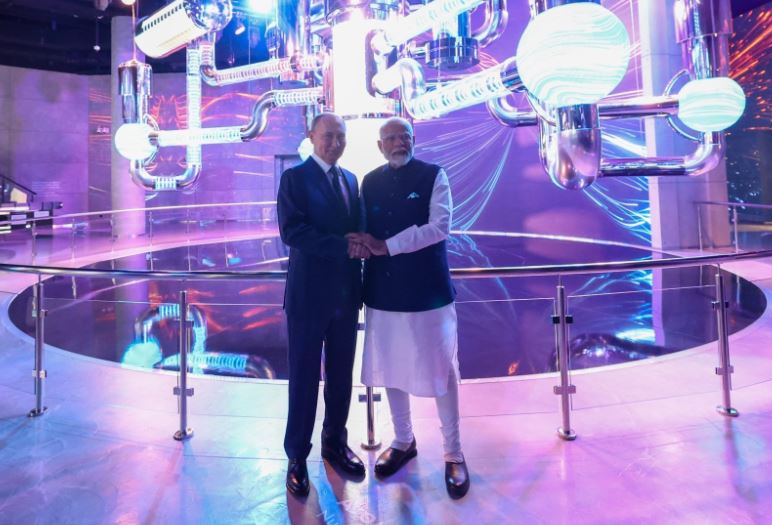India-Russia Nuclear Cooperation
India’s partnership with Russia in the realm of nuclear energy has evolved into a pivotal aspect of their multifaceted cooperation. During Prime Minister Narendra Modi’s recent visit to Moscow, this collaboration was further strengthened as Russia offered its expertise in building small tropical nuclear power stations for India. This development marks a significant milestone in the bilateral relationship, promising enhanced energy security and technological advancement.
Focus on Small Tropical Nuclear Reactors
The focus keyword for this article, “small tropical nuclear reactors,” represents a groundbreaking initiative proposed by Russia. The CEO of the state-run corporation Rosatom, Alexey Likhachev, emphasized the potential for deep localization, including the transfer of construction capabilities to New Delhi. This proposal aligns with India’s goal of expanding its nuclear energy capacity while promoting self-reliance in critical technologies.
Strategic Significance and Technological Advancements
The collaboration between India and Russia in nuclear energy is not new. They have been working together on constructing six 1,000 MW nuclear reactors at the Kudankulam Nuclear Power Plant (KKNPP) since 1998. With power units No. 1 and No. 2 already commissioned, the construction of units No. 3, No. 4, No. 5, and No. 6 is underway, with a target completion date set for 2027. This long-standing cooperation has laid a strong foundation for the new initiative on small tropical reactors.
Enhancing Energy Security and Technological Mastery
The introduction of small tropical nuclear reactors offers several advantages. These reactors are designed to be efficient and adaptable to India’s diverse climatic conditions. Their smaller size and modular construction make them easier to deploy and manage, providing a reliable and scalable solution for India’s growing energy needs. Moreover, the deep localization aspect ensures that India can develop and maintain these reactors with a high degree of self-sufficiency.
Fourth Generation Nuclear Technologies
In addition to the current collaboration, Rosatom is keen to develop fourth-generation (4G) nuclear technologies in India. These advanced technologies include fast reactors and fast-neutron reactors, which promise greater efficiency and safety. The ongoing cooperation in the third-generation VVER technologies has built a strong foundation of trust and technical expertise, paving the way for future advancements.
Implications for Future Energy Cooperation
The collaboration on small tropical nuclear reactors and the development of 4G technologies signify a forward-looking approach in India-Russia nuclear cooperation. These initiatives not only enhance energy security but also foster technological innovation and knowledge transfer. The strategic partnership is poised to contribute significantly to India’s energy transition, reducing dependence on fossil fuels and mitigating environmental impact.
Prime Minister Modi’s Visit to the Atom Pavilion
Prime Minister Modi’s visit to the Atom Pavilion at the All Russian Exhibition Centre, VDNKh, was a highlight of his Moscow trip. Accompanied by Russian President Vladimir Putin, Modi witnessed a photo exhibition showcasing India-Russia cooperation in civil nuclear energy. He also interacted with a group of Indian and Russian students, encouraging them to explore future possibilities in science and technology for the benefit of future generations.
Conclusion
The India-Russia partnership in nuclear energy continues to evolve, with the proposal for small tropical nuclear reactors marking a significant advancement. This collaboration not only enhances India’s energy security but also promotes technological self-reliance and innovation. As the two nations work together on these ambitious projects, the future of nuclear energy in India looks promising, with the potential to transform the energy landscape and contribute to sustainable development.
Soumya Smruti Sahoo is a seasoned journalist with extensive experience in both international and Indian news writing. With a sharp analytical mind and a dedication to uncovering the truth, Soumya has built a reputation for delivering in-depth, well-researched articles that provide readers with a clear understanding of complex global and domestic issues. Her work reflects a deep commitment to journalistic integrity, making her a trusted source for accurate and insightful news coverage.



